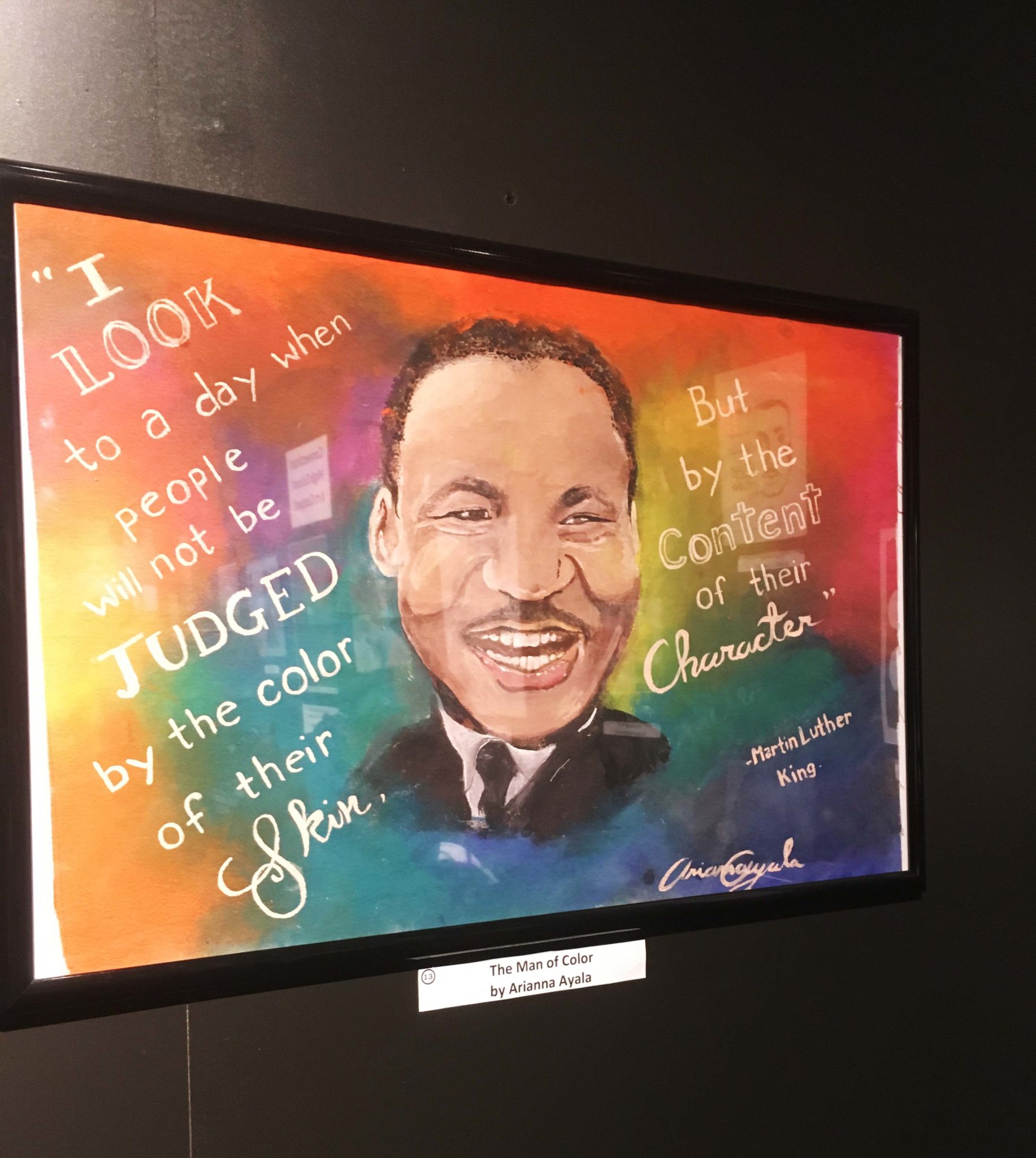
On Monday, Elm City artists, performers and activists gathered at the Yale Peabody Museum of Natural History for the 21st annual celebration of Martin Luther King Jr.
With 7,246 visitors throughout the two-day event, the Peabody was rearranged to highlight activities and performances that interwove King’s speeches and literary works. Displayed across the Peabody’s walls were pieces of art from students at local high schools depicting King giving speeches. Along the walkways were various informational and interactive booths meant to show children how to “Unite Against Hate.” And at the center of the Peabody’s Great Hall of Dinosaurs were performers, ranging from hip hop dancers to traditional African drum and singing groups.
David Bedell, vice president and Information Technology director of the nonprofit Teachers Against Prejudice, for example, was in attendance. Among the interactive and informational booths displayed at the museum, Bedell sat at a desk surrounded by literature, films and theater that focused on different issues of prejudice.
“We use the lens of popular media — film and TV — to start discussion about these issues,” he said. “Often if you can watch a movie or a read story about one of these issues, it’s a good way to springboard discussions in the classroom or at home.”
Comprised of previous English as a second language teachers, Teachers Against Prejudice has gone on to sponsor essay competitions, scholarships and art contests focusing on identifying and overcoming prejudice. As such, they have been partners with the annual King celebration for years and come back for the opportunity to speak and interact with kids from all over Connecticut.
Anthony Thomas, a professional dancer and a performer for the Red Hot Entertainment hip-hop group, told a similar story of community and inclusion. Dancing to popular songs altered to include some of King’s most famous speeches, Thomas was a clear favorite among the children in the crowd.
“It’s educational for the youth that come here,” Thomas said. “A lot of people think hip-hop is just what they see on TV, but hip-hop is a culture. Hip is for the fashion, the celebration, the style. Hop is for everybody: the music, the sound, the fun.”
Citing hip-hop’s vibrant energy of positivity and community — one that had been first established among black youth in the 1970s — Thomas added that the kids’ reactions of seeing dance in the flesh and tapping their feet or nodding their heads along with the music has made him return to this particular event for the past five years. Though this year was the first he has performed with his current group, the dance and the atmosphere were reminiscent of King’s rallies and united the crew, whose hometowns ranged from Hartford and New Haven to Bristol and Durham.
The event was particularly important for Austin Daily of Durham who has performed on this day of celebration for more than 10 years. Collaborating with a variety of musical entertainment and dance groups, Daily recalled working with a long-time friend and fellow dancer on the event three years ago.
“It was this amazing community with such positive vibes amongst all of us,” he said, explaining how the stylistic differences and conflict among the dancers seemed to melt away. “When we came here to this event, we sat at that big long table like it was the last supper.”
Daily’s friend died soon afterward, he said, but it is with this memory of friendship and community at the annual King Celebration, however, that Daily remembers his friend.
The event also doubled as a food drive to collect nonperishable food items for the New Haven Community Soup Kitchen and Christian Community Action.
Correction, Jan. 20: An earlier version of this story misstated the number of visitors to the Peabody and misidentified Austin Daily as an organizer rather than a performer.







